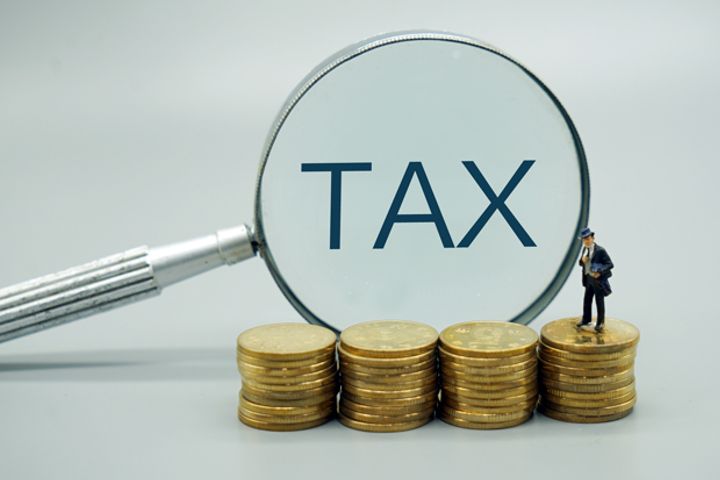 China to Slash Taxes, Fees
China to Slash Taxes, Fees(Yicai Global) Oct. 29 -- China will cut more taxes and fees and streamline its three-tier value added tax rate to two levels and reduce the social insurance rate.
The national general public budget revenue and tax revenue grew at the lowest rate of this year last month, while the growth rate of domestic VAT turned negative, down 1.2 percent, figures from China's ministry of finance show, online media China Securities Journal reported.
The scale of tax cuts and reductions is expected to exceed CNY1.3 trillion (USD187 billion) this year and the government is working on larger tax cuts and clearer measures to pare costs, said Liu Kun, the country's finance minister.
"China has 18 kinds of taxes and we should focus on the major ones to truly realize reductions, especially the two main types -- the value-added and corporate income taxes," he told China Securities Journal, adding that the improvement of the VAT system must speed up after the reform program and replace the business tax with a value-added tax nationwide. The reform goal of simplifying the three-tiered VAT system to two tiers has not yet been achieved, he said.
China's current VAT system has three brackets of 16 percent, 10 percent and six percent. "VAT system simplification must be implemented as soon as possible," Liu said, adding that the 16 percent benchmark rate could decrease, which will reduce the overall VAT burden while improving its system.
There are three possible ways for the VAT tier reform to proceed, said Hua Changchun, global chief economist of Guotai Junan Securities Research Institute. The first is to remove the brackets of 10 percent and six percent and set a five percent slot while reducing the 16 percent one to 15 percent. This would cut CNY923 billion (USD133 billion) in value-added tax.
Breaking Brackets
The second is to get rid of the 10 percent and six percent brackets for a five percent one, and trim the 16 percent to 13 percent, thereby shedding CNY1.3 trillion (USD187 billion). The third is to integrate the 16 percent with the 10 percent while dropping the six percent bracket to five percent, thus lopping of CNY1.4 trillion.
Corporate income tax, the other major tax, is expected to be further consummated. China must consider global tax rates and its own conditions to lower the rate appropriately, Liu said, adding that "China's corporate income tax rate is 25 percent while 15 percent is set for new and high technology enterprises, and 20 percent for small and micro enterprises, so the scope is there for downward adjustment."
The company income tax rate should fall from 25 to 20 percent -- with the reduction partially offset by increasing the amount in profits state enterprises with higher profit margins turn over to government coffers -- and tax cuts extended to more private companies, urged Feng Ming, a researcher with National Academy of Economic Strategy of Chinese Academy of Social Sciences.
Fee reduction measures are also in the pipeline. Concerned social insurance premiums may greatly boost companies' operating costs, authorities have clearly signaled they will study specific measures to further ease corporate tax burdens and lower social insurance rates.
The considerations for adjusting the social security rate include that the reduction should match the portion of the original income increase due to the collection and management factors, in the view of Zhang Bin, director of the Tax Research Office of National Academy of Economic Strategy of the Chinese Academy of Social Sciences. The chance to promote national coordination and establish a national unified pool of funds must also be seized. Factoring in the pressure of future pension expenditures, state capital can also be transferred to social security to fill the gap, Zhang believes.
The actual social insurance rate may be five percent lower than the nominal rate and lowering the nominal rate by six to eight percent may reduce the impact of strict collection and management on firms, said Liang Hong, chief economist with Beijing-based leading investment banking firm China International Capital.
Editor: Ben Armour